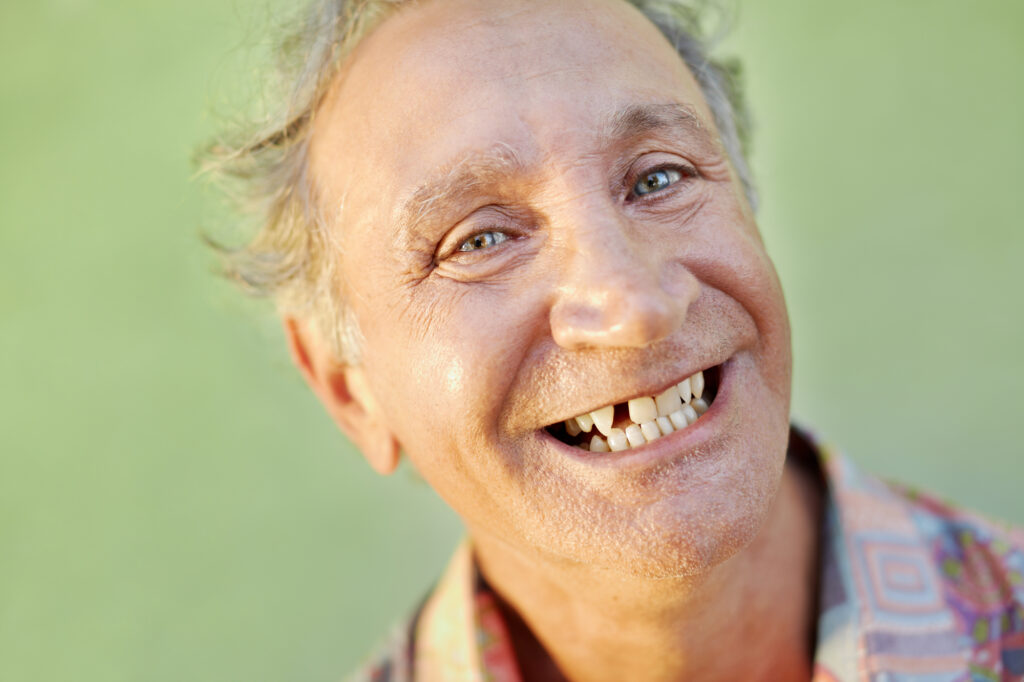Many adults experience tooth loss. Gum disease, cavities, or trauma can be the underlying causes of missing one tooth or several teeth. Missing teeth can even be the root cause of many health and social problems. Thankfully, if you’re looking to replace a lost tooth, there are several treatment options. Continue reading to understand more about how missing teeth impact daily life and a few options to restore your smile back to its former glory.
How do missing teeth impact daily life?
Here are nine physical and psychological problems related to missing teeth:
Difficulty Chewing
The main mechanism for teeth is biting and chewing foods. Missing teeth makes it difficult or uncomfortable to chew. This may cause people to eat less or differently, which often results in poor nutrition. Poor nutrition can cause health problems both short-term (stress, tiredness, and capacity to work) and long-term (excess weight, tooth decay, and high blood pressure).
Speech Issues
Speech is all about sounds, and forming sounds correctly requires a proper posture of oral structures (including the teeth). Some sounds are caused by friction of airflow pressed against the speaker’s teeth. Other sounds are articulated at the front of a person’s mouth (between the upper teeth and lower lip). Some words are distorted or impossible to pronounce without teeth, including the word “teeth.”
Decreased Confidence
Missing teeth can make it difficult to say certain words and also affect speech indirectly by reducing confidence. In a study published by the American Dental Association, a quarter of people surveyed reported embarrassment and avoidance of smiling due to their missing teeth.
Job Opportunities
In the same study conducted by the ADA, almost 30% of adults with missing teeth reported that the appearance of their mouth and teeth affects their ability to interview for a job.
Facial Changes
Missing teeth affect the height of jawbones and change facial angulation and facial muscles. This can make noses appear larger, lose shape around the corners of the mouth to make a frown, make the chin look more pointed, and thin out the lips.
Premature Aging
Missing teeth can change the shape of the face to make people appear older than they actually are. Without structural support, skin sags around the mouth and cheek jowls. Sagging causes an increase in vertical lines.
Shifting Teeth
Excess room in the mouth may cause teeth to shift. Teeth may gap or collide, which causes long-term problems. Because crowded teeth are more difficult to clean between, they are more at risk for tooth decay. Shifting can also adversely affect bite and alignment.
Compromised Mental Health
A study published in 2014 discovered a link between missing teeth and mood disorders (depression and anxiety). Patients with dental anxiety are more likely to avoid dental care, and individuals with depression are more prone to be inattentive in self-care.
Bone Atrophy
Normal chewing pressures allow bone tissue to continuously rebuild itself. This natural process removes old bone (resorption) and adds new bone where it’s needed (ossification). When the tooth and tooth roots no longer exist, resorption occurs much faster than ossification. This weakens and reduces jawbone tissue, making the jaw more prone to fractures, breakage, and imbalance.
Three Methods of Replacing Teeth
Dental implants
Dental implants can replace a single tooth or more. This treatment involves multiple surgeries and six to nine months to heal. Treatment involves placing a titanium metal post into the upper or lower jawbone. After this heals, an abutment and replacement tooth are mounted on the implant. This helps the restoration stay in place and mimics 90% of natural chewing forces.
Dental implants can support:
- Crowns
- Bridges
- Dentures
- Full Arch-Restorations
Dental implants are ideal because they act as natural tooth roots, but not everyone qualifies for them.
Fixed Dental Bridge
Dental bridges are another great tooth replacement option. Dental bridges are effective for replacing one to three teeth in a row. A fixed bridge closes the gap caused by missing teeth using a dental prosthetic that is bonded to adjacent teeth.
Dentures
If you need to replace an entire row or set of teeth, dentures are a viable treatment option. Natural teeth stabilize a removable plastic base with artificial teeth attached. Dentures can look and feel natural. Plus, they can be repaired and replaced with ease.
Book an Appointment in Austin, TX
If you would like to know more about how missing teeth can influence the quality of life and which tooth replacement option is right for you, call us at (512) 346-4690 or message us online to schedule an appointment with Austin Laser Dentist.

